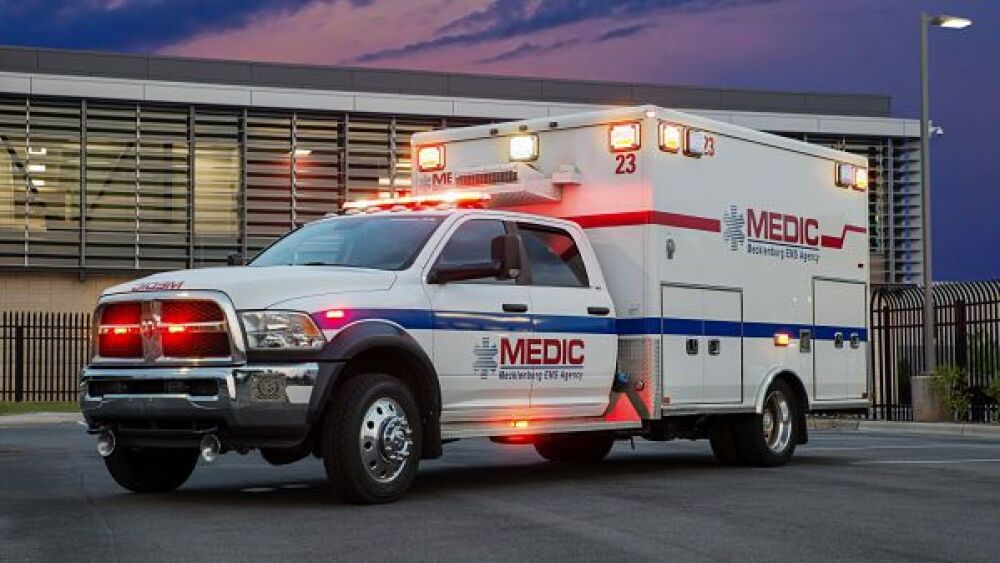Jonathan Limehouse
The Charlotte Observer
CHARLOTTE, N.C. — Mecklenburg EMS has requested “ambulance strike teams” as it faces a more transmissible COVID-19 variant, an ongoing staffing shortage and an increase in service calls.
As of Monday, 33 Medic employees are in isolation due to COVID-19, the agency’s Deputy Director Jon Studnek said during a virtual news conference Monday. On Dec. 21, Medic had just three employees in isolation, he said.
“We know that COVID is spreading rapidly in our community, and it is impacting Medic the same as other members of our community,” Studnek said.
To help with shortages, Medic has asked the Federal Emergency Management Agency for 25 ambulances and 50 personnel. This request is pending, Medic said in a news release.
In September, North Carolina Department of Public Safety officials requested 40 advanced life support and 10 basic life support ambulances from FEMA. The state received 25 advanced life support ambulances, each with a two-person EMS crew, the Observer previously reported. Medic was assigned five “strike” teams, consisting of five new vehicles and 10 personnel.
The teams mostly transported non-emergency patients out of the hospital to free bed capacity, the Observer previously reported.
The contract expired on Oct. 28.
If Medic’s latest request is granted, the extra help could assist with the increasing number of daily COVID transports, Studnek said. Before Christmas, Medic handled four to five COVID transports per day, but that number recently increased to 25-30, he said.
The number of transports varies on a daily basis, but it’s still high and “fueling the rise” in Medic’s transport volume, Studnek said.
Medic said it intends to make more 911 calls eligible for “Alpha” status, which means low-risk patients would not receive a first responder response, and the agency would have a response time target of less than 60 minutes.
“This lessens the burden on first responders and increases Medic’s 911 Communication Center’s ability to triage calls if necessary,” the agency said.
The agency announced the new process in October, when it was short 38 full-time, patient-facing employees.
Patients are now eligible to be taken to the closest in-network facility if clinically appropriate, Medic said. This decreases excessive transport times and allows ambulance crews to be prepared faster for the next call, according to the agency.
Medic continues to offer ride-sharing program to transport low-risk patients to hospitals through its partnership with Circulation, a company that works with Lyft to provide the service to the medical community.
There have been 109 successful Lyft trips since Oct. 1, Medic spokesman Lester Oliva said.
___
©2022 The Charlotte Observer












